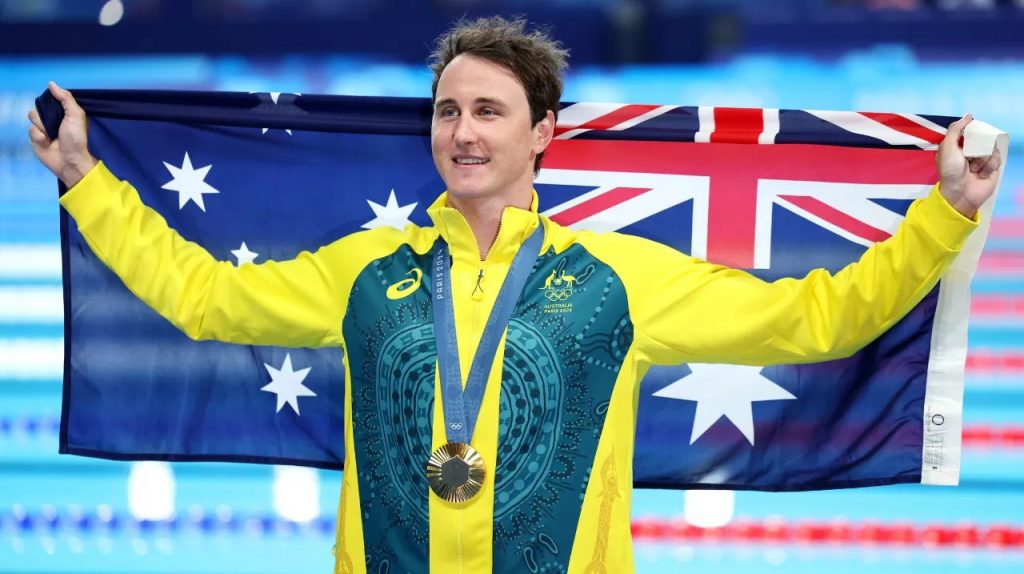
Article by Phil Lutton, courtesy of the Australian Olympic Committee.
There is a photo of Cam McEvoy, taken two years ago, wearing a shirt from the Tokyo Games as he gazes across the Arc de Triomphe. The caption reads: ‘Reconnaissance.’
It may well have read: ‘Renaissance.’ It was in that exact moment, he said, that he decided to go all-in for his tilt at a fourth Olympics in Paris, to push his newly-concocted experimental training regime to its limits and see where the ride ended.
Now he knows. After 21.25 seconds of feverish, red-line racing, Cam is the Olympic champion in the Men’s 50m Freestyle. In doing so, he became the first Australian male to win a medal in the event and, at the tender age of 30, the oldest Australian to ever win an individual gold in the pool.
It’s a story with so many twists and quirks even Cam can scarcely believe it all came to fruition. He almost walked away from the sport after missing the medals as the 100m Freestyle favourite in Rio, then returned as a relay swimmer in Tokyo to collect a bronze in the 4x100m Freestyle.
Determined to leave no stone unturned in the search for performance, he joined with coach Tim Lane on the Gold Coast and created a unique training program that traded the traditional grind of endless kilometres in the pool for short, fast, explosive and repetitive race recreations.
He transformed his body, replacing his lean and slender racing physique with bulk and power, and opened his mind to new possibilities of what training should resemble. Now he has the ultimate proof his theory works – Olympic gold.
“I got the result that you go after but it’s hard to explain the process after the past two years and the route I took to get here. For me, that definitely surpasses the 21 seconds tonight and getting the gold medal. That’s the tip of the iceberg,” Cam said.
“That active creation over the past two years to start with not much of an idea, to developing something and seeing where it can go, with me as the guinea pig and seeing where it could take me.
“That’s something I will find very hard to replicate in my life and something I will be the most proud of forever.”
The Paris La Défense Arena has been a furnace all week as French star Leon Marchand collected gold medals night after night. They have erupted for every home athlete and while Cam was making his way to the blocks, French veteran Florent Manaudou was hyping up the crowd into a frenzy.
Cam was an oasis of calm. He was first off the blocks with a lightning reaction time of 0.56 – the quickest in the field and a vital margin at the end, where he beat Team Great Britain’s Ben Proud by just 0.05, with Manaudou taking bronze.
“Before the race it was insane. Flo (Manaudou) was clapping, getting the crowd going, it was awesome. I’ve never experienced anything like that,” Cam said.
“Within four strokes I hit that rhythm we have been working on for the past two years. I could see Ben the entire time and then under the flags, it was just hoping I could line this touch up, lean in and get my hand on the wall first.”
Cam’s work is done this week but he’s not thinking that Paris is his final Games. Nor does he think he will stop in Los Angeles in 2028. Brisbane 2032 might just be the ultimate experiment, where he hopes to be swimming just as fast at 38.
Who’s to tell him it can’t be done?
“A home Games would be absolutely unreal. I’ll be 38 and there have been swimmers who have won world championships at that age. Let’s see what time has for me.”














